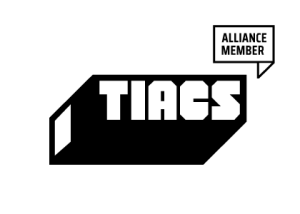What tools and equipment do building inspectors use?
Building inspectors are tasked with the extremely important job of inspecting buildings to ensure that they are safe, structurally sound, and accurate to their original plans. Although building inspectors do rely heavily on the skill of observation, they also utilise a wide range of inspection equipment and tools to ensure that they’re providing the most accurate information and data to their clients.
So, what tools are needed to perform a home inspection? Here are some of the essential pieces of equipment that you’ll need to use whilst working as a building inspector:

1. High-powered flashlight
In order to assess the structural quality of a property, building inspectors will often have to work in dark and inaccessible areas. That’s why having access to a flashlight is absolutely essential for any building inspector. We’re not talking just any old flashlight–we’re talking inspection grade flashlights with power-LED illumination systems that allow you to see metres into the distance. Having a powerful flashlight handy allows inspectors to properly do their jobs and to provide accurate information to their clients.
2. Moisture metre
Excess moisture is a common culprit of many property faults. However, detecting excess moisture isn’t always straightforward. For this reason, building inspectors often carry moisture metres with them to their jobs. These devices work to detect the moisture levels hidden behind a wide range of materials. Moisture metres are typically non-invasive, which allows inspectors to test the moisture levels in a home in a way that does not cause any damage to the home.

3. Infrared thermometer
Infrared thermometers show temperature variations over a large surface area, which allows building inspectors to identify a wide variety of issues in a property, including air leakage, excess moisture, heat loss, and poor insulation. These issues are more often than not invisible to the eye, so having access to equipment that can do the job for you is an invaluable asset. Once again, this is a non-invasive method of inspecting a property for faults, which is why it’s an essential tool for any building inspector toolkit.
4. Tool belt
The basics are the basics for a reason! They’re the most essential products and items that allow you to perform a job at its most basic level. Building inspectors will usually keep standard items such as wrenches, hammers, tape measures, levels, screwdrivers, and protective gear on them during a job. These items, whilst basic, are typically needed in some capacity for even the most complex of inspections. That’s why they’re often worn by building inspectors by way of a tool belt or a tool vest.
5. Gas detectors
Most of us use gas on a daily basis without even thinking about it. Gas systems make our lives infinitely easier, but they can also pose a serious threat to households. You can’t smell or see dangerous gases such as carbon monoxide, which is why they’re often referred to as ‘silent killers’. Carbon monoxide testers allow building inspectors to test the air for dangerous gases. It’s a simple task that can very well save lives.

Do you need training to use building inspection equipment?
Building inspection is a highly specialised industry that does definitely require specific construction knowledge. That’s why building inspectors often have a background working in a trade such as carpentry, electrical, and plumbing. In Australia, the qualifications required to become a building inspector vary depending on where you live. Queensland is the only state that requires building inspectors to be licensed builders. In other states and territories, you don’t have to be a licensed builder to work as a building inspector, but you do have to have a degree, diploma, or experience in the field.
The best way to determine the steps you need to take to become a building inspector is to read up on your state or territory’s minimum requirements. Our team at Jim’s Building Inspections have come from all walks of life (not just construction), so we’re always happy to have a chat with anyone looking for more information on the process of becoming a building inspector.
If you are looking to start a new career as a building inspector, it’s important to know that there is certainly a learning curve that comes with learning how to use home inspector tools and structural inspection tools. One of the benefits of starting a building inspections business with Jim’s Group is that we provide you with hands-on training–both at the beginning of your business journey and throughout your business journey. Being able to learn how to use high-quality equipment from the most experienced inspectors is an invaluable opportunity and allows you to start your business and take on clients with confidence.
If you love working hands-on and have a passion for helping others, starting a building inspections business may be a hugely rewarding endeavour to consider. At Jim’s Building Inspections, our franchisees come from all walks of life, cultures, and backgrounds. If you’ve been thinking about starting your own business in the building inspections industry, we’d love to hear from you. Give us a call on 131 546 or get in touch online today to discuss next steps.





